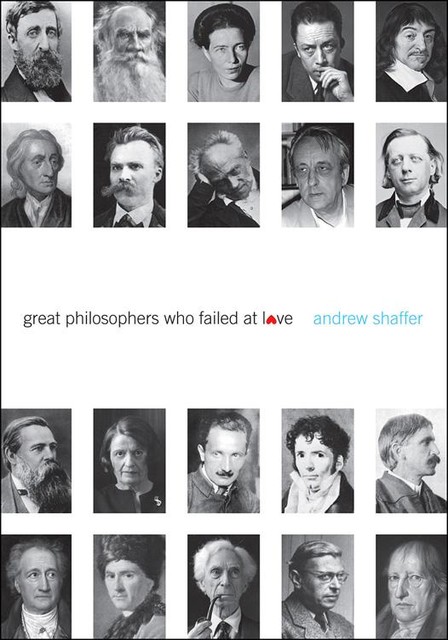Great Philosophers Who Failed at Love
- yohanatoruanhas quoted7 years ago“Love does not exist. There exists the physical need for intercourse, and the rational need for a mate in life.”
- yohanatoruanhas quoted7 years ago“By all means, marry. If you get a good wife, you’ll become happy; if you get a bad one, you’ll become a philosopher.”
- yohanatoruanhas quoted7 years ago“Man is born free; and everywhere he is in chains,” he wrote. “But human nature does not go backward, and we never return to the times of innocence and equality, when we have once departed from them.”
- yohanatoruanhas quoted7 years ago“I consider promiscuity immoral. Not because sex is evil, but because sex is too good and too important.”
- yohanatoruanhas quoted7 years ago“To say ‘I love you’ one must first know how to say the ‘I.’ ”
- yohanatoruanhas quoted7 years ago“Love is a serious mental disease.”
- yohanatoruanhas quoted7 years agoSometimes the force of a clear argument may make some impression, yet they nevertheless stand firm, and keep out the enemy, truth, that would captivate or disturb them.
- yohanatoruanhas quoted7 years agoThe one who in love forgets himself, forgets his suffering, in order to think of someone else’s, forgets all his misery in order to think of someone else’s, forgets what he himself loses in order lovingly to bear in mind someone else’s loss, forgets his own advantage in order lovingly to think of someone else’s—truly, such a person is not forgotten. There is one who is thinking about him: God in heaven.
- yohanatoruanhas quoted7 years agoKant believed that masturbation is a sin worse than “even murdering oneself.” Suicide, he argued, requires courage; the masturbator is simply giving in weakly to lust.
- yohanatoruanhas quoted7 years agoWe change ourselves into that which we love, and yet remain ourselves. Then we would like to thank the beloved, but find nothing that would do it adequately. We can only be thankful to ourselves. Love transforms gratitude into faithfulness to ourselves and into an unconditional faith in the Other. Thus love steadily expands its most intimate secret. Closeness here is existence in the greatest distance from the other—the distance that allows nothing to dissolve—but rather presents the “thou” in the transparent, but “incomprehensible” revelation of the “just there.” That the presence of the other breaks into our own life—this is what no feeling can fully encompass.
fb2epub
Drag & drop your files
(not more than 5 at once)


